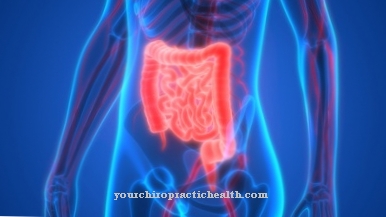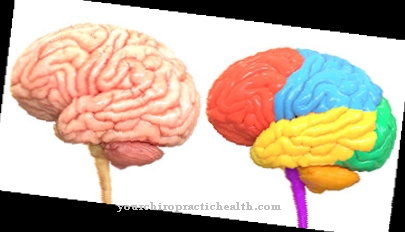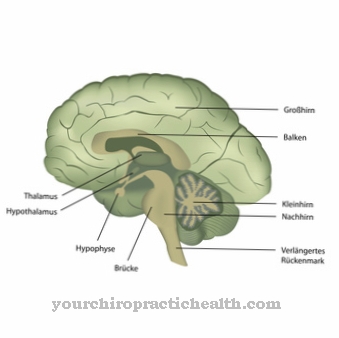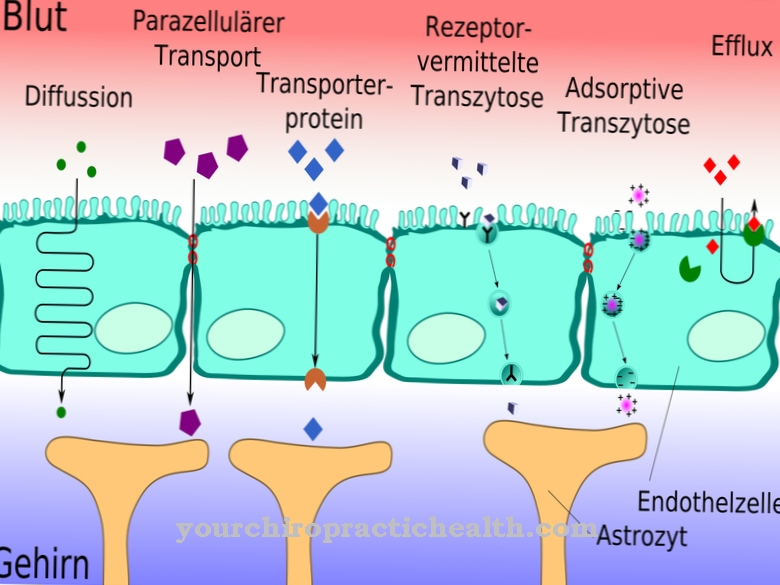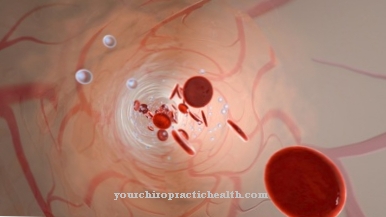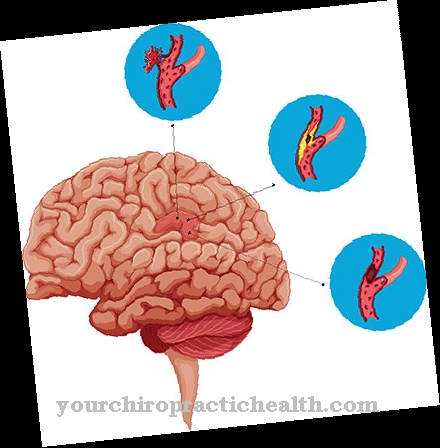Under the term Hyperplasia One subsumes different forms of cell proliferation, which can equally happen in or on an organ, in muscles, skin or connective tissue. The reasons for cell growth can be of various types. Hyperplasia is in contrast to hypertrophy, a stunting of cells, and neoplasia, which specifically means benign or malignant tumor neoplasms.
What is hyperplasia?

© RFBSIP - stock.adobe.com
The definition of the term Hyperplasia states that it is about increased cell growth anywhere in the organism. The hyperplasia can be stimulated by a functional load, but it can also be caused by hormonal, bacterial, virological or medicinal relationships.
It is interesting that the hyperplasia is often reversible. If you stop exercising or stop hormonal stimulation, cell growth is reversed. It can, but does not have to be, a consequence of the disease.
causes
The causes of the Hyperplasia are diverse. This strongly generalizing term is used to describe any form of cell growth, regardless of the trigger. An exception to this is tumor growth, which in its benign and malignant form would be called neoplasia or neoplasm.
Hyperplasia is differentiated into various forms, which are referred to, for example, as adenomatous, angiolymphoid, focal epithelial, focal nodular hyperplasia or as polypous, foveolar, lymphoid or glandular-cystic hyperplasia. In hyperplasia, the organ or cell segment does not enlarge due to the swelling of cells, but rather as a result of the cells actually multiplying.
In the case of an enlargement of the thyroid gland or prostate, for example, the cause must be found because a disease may be the underlying cause. As a result, hyperplasia can be pathological. But warts, cysts and newly formed scar tissue are also referred to as hyperplasia and are not always pathological. Many forms of hyperplasia are considered harmless.
Symptoms, ailments & signs
Hyperplasia manifests itself primarily as an enlargement of organs and tissues. These changes can make themselves felt through various symptoms and complaints, always depending on which body regions are affected. Growths on the liver sometimes express themselves as signs of jaundice, pain in the upper abdomen and unspecific itchy skin on the arms and legs.
If the kidneys are affected, similar symptoms occur. Often there are also digestive problems and severe malaise. Benign growths on the ovaries can show up as unusual pain that is not related to any specific cause. Some patients also experience bleeding and cramps in the abdomen.
Basically, hyperplasia has a negative impact on quality of life. Those affected feel increasingly tired and exhausted as the disease progresses, and the pain often also has a negative effect on their mental state. If the hyperplasia is left untreated, further complications can arise.
Many patients develop renal insufficiency or chronic liver dysfunction, both of which are associated with serious sequelae and a further decrease in well-being. If the symptoms are based on [[[Malignant tumor malignant tumor]], the hyperplasia can be fatal under certain circumstances.
Diagnosis & course
Diagnosis and course correspond to the differences in each Hyperplasia. A single wart doesn't have to worry you. A cyst or myoma develop, but can also regress again. An enlarged gland or a thickened organ can, however, require treatment.
Benign growths on the liver, the male prostate gland, the ovaries, the skin or the kidneys require examination, as do all other hyperplasias, which are presumably not due to harmless causes. As a first measure, a tactile finding, an inventory of the patient observations and an ultrasound can provide information about what is happening inside the body. If necessary, other imaging measures or microscopic examinations should be considered, in which an operation can also be a consequence.
Adrenal hyperplasia can occur as a result of diabetes or other diseases. The course then depends on the underlying disease that caused the hyperplasia. Likewise, drugs, alcohol abuse, obesity or contraceptives can all lead to hyperplasia. The diagnosis and course depend on the anamnesis and the suspected cause of the hyperplasia.
In the case of hyperplasia of the female breast, mammography would be advised after scanning. A biopsy may need to be considered. The targeted muscle hyperplasia - the intended muscle building through bodybuilding - does not require a diagnosis, unless this activity would become an addiction or the formation of new muscles would impair the function of important organs. It must be examined in each case whether the hyperplasia is in need of treatment or not.
Complications
As a result of the hyperplasia, the person concerned suffers from a strong increase in the number of cells that goes beyond the usual level. In most cases this increase does not cause any problems, but in the long run it can lead to an enlargement of the orange. The enlargement of the organs always has a negative effect on the quality of life and the health of the patient.
As a rule, other organs are displaced or squeezed as a result, which can result in complications. In most cases these will be the kidneys and the liver. In the worst case, the patient can suffer from renal insufficiency and is dependent on a donor organ or dialysis. Everyday life is also extremely difficult for those affected.
The liver can also be damaged by hyperplasia. As a rule, when the spleen enlarges, there is pain on the side. The treatment of hyperplasia is always causal and in most cases is not associated with complications. However, if it is a malignant tumor, in some cases no further treatment can be given and the affected person dies prematurely.
When should you go to the doctor?
If warts or other skin changes develop, it is advisable to consult a doctor. Removing warts on your own can lead to complications. Therefore, they should be professionally examined and treated. If the warts or existing skin imperfections spread or increase in size, a doctor should be consulted.
Discoloration of the skin, swelling of the skin or ulcers should be presented to a doctor. In the event of a general feeling of illness, malaise or diffuse abnormalities, a visit to a doctor is advisable. If there are digestive problems, functional disorders or a drop in performance, the complaints must be clarified.
In the event of tightness in the body, changes in the menstrual cycle, sexual dysfunction or erectile dysfunction, an investigation should be initiated to research the cause. If you experience unusual weight gain or if your upper body is gaining size for no apparent reason, you will need a doctor. Repeated abnormalities when using the toilet must be medically examined.
If the amount of urine decreases or if discoloration of the urine is noticed, the observations should be discussed with a doctor. If there is a loss of appetite or if the person concerned refuses to eat or drink, he needs a doctor. There is a threat of an undersupply of the organism and organ failure. Fever, anxiety, pain or cramps are indications that must be clarified medically.
Doctors & therapists in your area
Treatments & Therapy
Also the treatment of the Hyperplasia must be in coordination with the existing underlying disease or disorder. Some hyperplasia does not need treatment at all, but others do.
Endometriosis is hyperplasia in women that is often painful. Like many other hyperplasias, it can also be treated with drugs and surgery. Depending on the cause of the hyperplasia, the practitioner decides whether or not hormone administration makes sense. In the case of hyperplasia of the tonsils and pharynx, the procedure is different than in the case of hyperplasia, which is caused by diabetes or another disease.
Often a regular to close-meshed follow-up is sufficient so that the hyperplasia is constantly under medical observation. Muscular hyperplasia from bodybuilding does not need to be observed, provided it does not have any health consequences. Hyperplasia in both female and male breast tissue requires medical clarification. It can be benign or malignant swellings and cell developments.
Outlook & forecast
The prognosis for hyperplasia is generally favorable. The difficulty lies in identifying the cause and treating it. Since the causes of the disease can be manifold, a good medical history is necessary. As soon as the causal trigger has been found, appropriate countermeasures can be initiated. The hyperplasia is basically reversible as long as no complications have arisen and no chronification has developed. If diagnosis is made early and treatment is started in the early stages of the disease, most patients will be free of symptoms.
If the hyperplasia has contributed to the enlargement of the organs and caused damage to the organ tissue, the prospect of a cure deteriorates. Therapy can relieve symptoms, but the likelihood of a full recovery is reduced. In addition, functional disorders can result in the need for an organ transplant or organ failure. In these cases there is a potential life risk for the person concerned.
If the patient suffers from other illnesses or has a weak immune system, this also has an unfavorable effect on the prognosis. If the cause of the hyperplasia can be found in the administration of medication, this can have a significant negative impact on the overall prognosis. The treatment is then switched to relieving the symptoms, since freedom from symptoms is usually not possible.
prevention
A prevention against a Hyperplasia is only possible to a limited extent, depending on the cause. It is based on a generally healthy lifestyle with sufficient exercise and a healthy diet. Familial tendencies, viruses, or hereditary diseases can trigger certain hyperplasias, such as warts. You would have little influence on that. Other forms of hyperplasia arise from acute or chronic disease events, drugs or mechanical conditions. Here, too, the preventive influence would only be possible to a limited extent.
Aftercare
In the case of hyperplasia, the direct measures and options for follow-up care are severely limited in most cases. Here, the person concerned is primarily dependent on a quick diagnosis and subsequent treatment so that further complications or a worsening of the symptoms can be prevented. The earlier the hyperplasia is recognized and treated by a doctor, the better the further course of the disease will usually be.
Treatment for this disease is most often done by taking various medications. The person concerned should always adhere to the doctor's instructions and follow them. If you have any questions or are unclear, you should always consult a doctor first. Furthermore, the correct dosage and regular intake of the medication must also be ensured in order to properly alleviate the symptoms.
However, in many cases, the underlying disease that is responsible for the hyperplasia must first be cured in order to permanently alleviate the symptoms. Furthermore, regular examinations of the internal organs are very important in order to detect damage early. Mainly the kidneys are to be checked. This disease may also reduce the life expectancy of the person affected.
You can do that yourself
The most common form of hyperplasia is enlargement of the prostate in men. This happens with age and leads to an increased need to urinate. To cope with this type of complaint in everyday life, there are a few tips.
Before going to bed, the person concerned should avoid drinking a lot of fluids. This makes it easier to sleep during the night because the person concerned does not feel a constant need to urinate. In general, however, the person affected should take care to drink enough fluids during the day. In addition, the consumption of drinks with a dehydrating effect such as coffee and tea, but also alcohol, should be avoided. They stimulate the body to produce urine. After urinating, the affected person can also wait a moment and then try again to urinate. This really helps the bladder to empty. Furthermore, the person concerned should avoid diuretic medication if possible. Such drugs are called diuretics. Medicines that affect the muscles of the bladder, such as antispasmodic drugs, should also be avoided.
If you have hyperplasia of the uterine lining, also called endometriosis, a doctor must be consulted. If necessary, he or she will carry out drug or surgical treatment. If the skin, liver or kidneys are affected by the hyperplasia, medical treatment is also required.

.jpg)
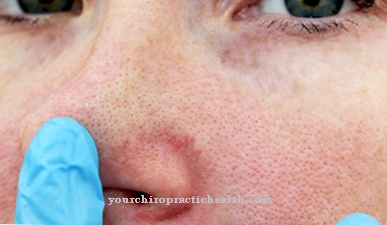
.jpg)


.jpg)





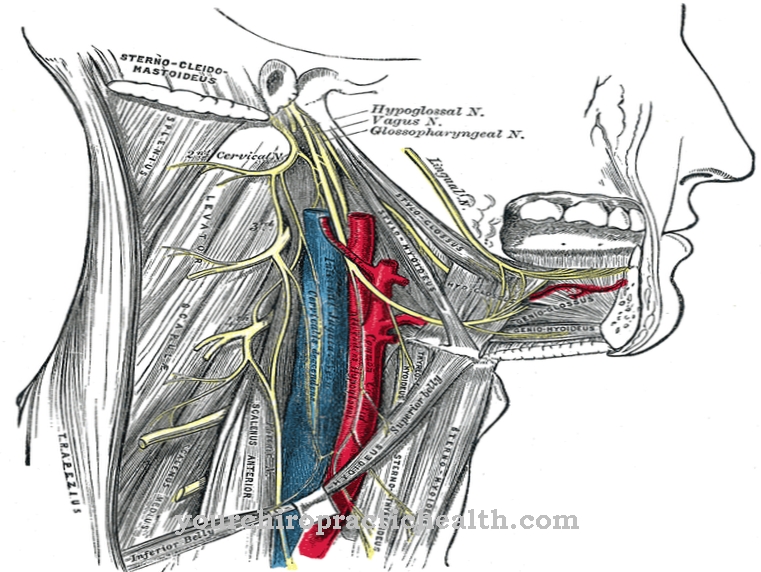

.jpg)

